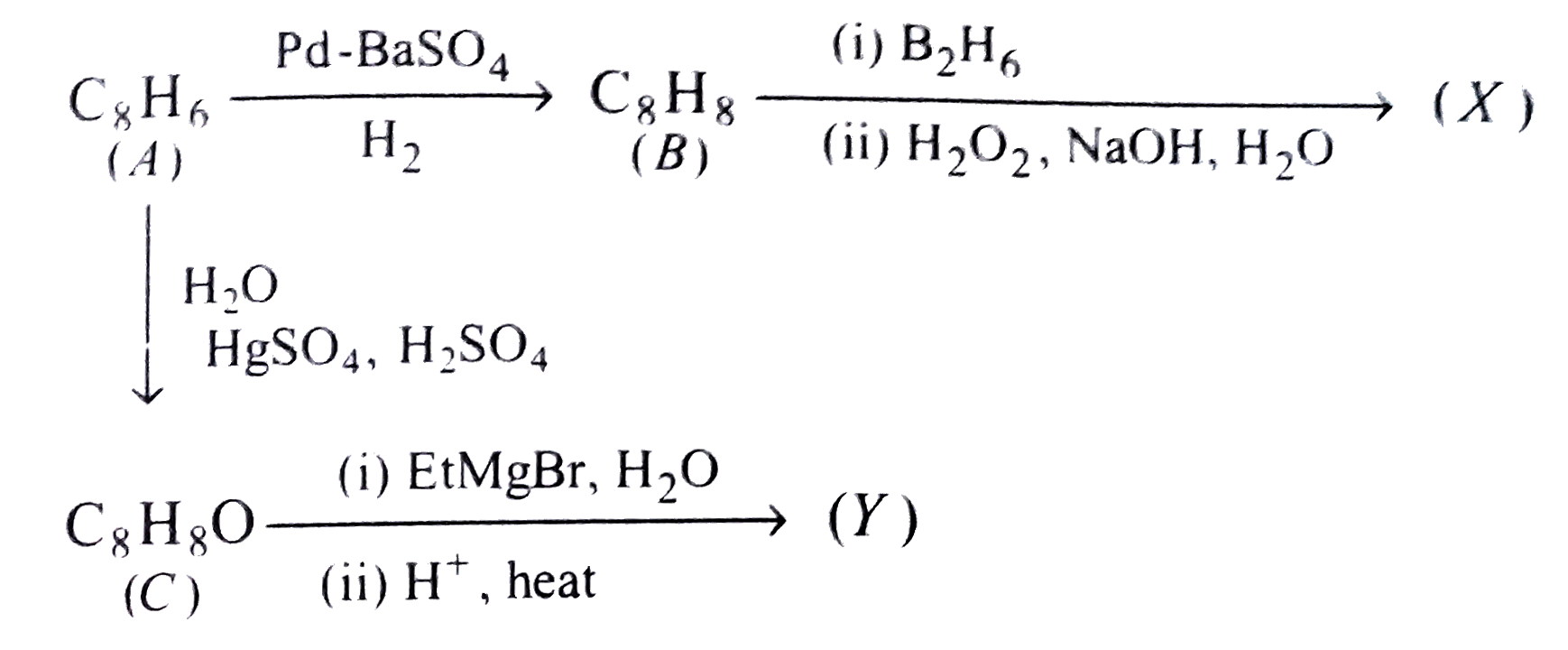Identify (C) in the following reaction:
 Solution in Malayalam
Solution in Malayalam




The correct Answer is:D
The reaction is : 
Topper's Solved these Questions
- ALCOHOL, PHENOL & ETHER BOOK - BRILLIANT PUBLICATIONCHAPTER - ALCOHOL, PHENOL & ETHER EXERCISE - LEVEL II (ASSERTION - REASON TYPE)
40 Videos
- ALCOHOL, PHENOL & ETHER BOOK - BRILLIANT PUBLICATIONCHAPTER - ALCOHOL, PHENOL & ETHER EXERCISE - LEVEL II (ASSERTION - REASON TYPE)
40 Videos
- ALCOHOL PHENOL AND ETHERS BOOK - BRILLIANT PUBLICATIONCHAPTER - ALCOHOL PHENOL AND ETHERS EXERCISE - LEVEL-II
40 Videos
- ALCOHOLS, PHENOLS AND ETHERSBOOK - BRILLIANT PUBLICATIONCHAPTER - ALCOHOLS, PHENOLS AND ETHERSEXERCISE - LEVEL III (Linked Comprehension Type)
12 Videos
Similar Questions
Assertion : Carbon oxygen bond length of phenol is slightly less than that in methanol.
Reason : There exist a partial double bond character and carbon to which oxygen is attached in phenol is sp2 hybridised.
View SolutionAssertion : Carbon oxygen bond length of phenol is slightly less than that in methanol.
Reason : There exist a partial double bond character and carbon to which oxygen is attached in phenol is sp2 hybridised.
View SolutionNumber of 2∘ alcohols among the structural isomers of C5H12O is
View SolutionAn important route to unsymmetrical ethers is a nucleophilic substitution reaction known as the Williamson synthesis. This synthesis consists of an SN2 reaction of a sodium alkoxide with an alkyl halide, alkyl sulphonate or alkyl sulphate.
By a proper choice of reagents, both symmetrical and unsymmetrical ethers can be prepared by Williamson synthesis. The reverse process of cleavage of ethers to give back the original alkyl halide and the alcohol can be carried out by heating the ether with HI at 373 K.
Which of the following reagents when heated will give a good yield of ether?
View SolutionIdentify A, B, and C, in the following reaction.
View SolutionIdentify (A), (B), and (C) in the following reaction.
View SolutionIdentify C in the following reaction:

View SolutionIdentify C in the following sequence of reaction:

View SolutionIn the following reactions identify (A), (B),(C),(X) and (Y).

View SolutionIdentify A, B and C in the following reactions-
View SolutionIdentify C is the following sequence of reactions :

View SolutionIdentify C in the following reaction.
View Solutionनिम्नलिखित अभिक्रिया क्रम में C को पहचानिए।

View Solutionनिम्नलिखित अभिक्रिया मे C को पहचानिए

View SolutionIdentify A, B and C of the following reaction :

View Solution
